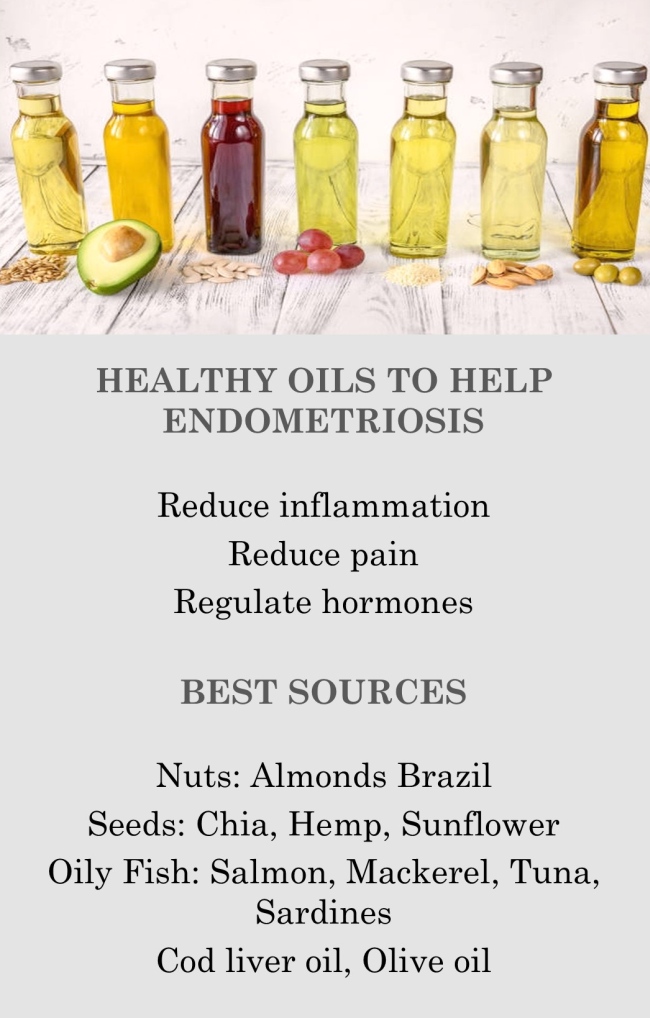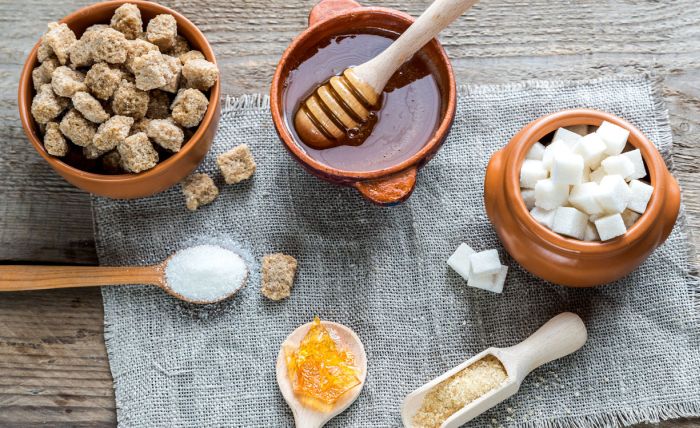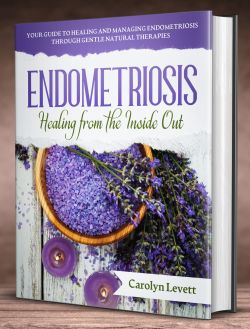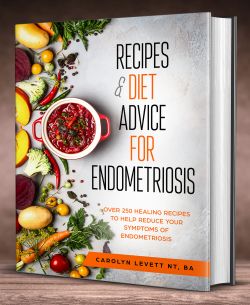Healthy Oils for the Endometriosis Diet

Endometriosis is very sensitive to certain food types and this includes the oils you use in your diet. You need to be using unprocessed oils which are high in omega 3 as these will help to reduce inflammation and help to reduce the symptoms of pain so commonly associated with endometriosis.
There is so much mis-information out there and yet getting the right fats and oils in the right balance is critical in the management of inflammation and overall health. The right oils will keep your cell membranes flexible; your hormones balanced and help to keep inflammatory hormones and substances under control.
Basically, processed vegetable oils are bad for you. During the extraction process of many oils, they undergo a heat and/or chemical process to remove the oil from the seed and to clarify and deodorise it. This process completely changes the molecular structure and in turn the body will treat it as a chemical.
It then has to be eliminated from the body by the liver by manufacturing specific enzymes. If your body’s metabolism is compromised in any way, like disease, this will cause further ill health.
You need to be using oils that metabolise into prostaglandin series one and three, because they are anti-inflammatory. Also, natural oil molecules are synthesised by the body to protect the cell membranes. This stops harmful chemicals entering and damaging the cells.
Ideally you need to be using natural, unrefined cold-pressed oils. They need to belong to the group of oils that contain essential fatty acids found in omega 3. These can be found in:
- olive oil
- walnut oil
- avocado oil
- borage oil
- star flower oil
It is best to use these oils in cold foods such as salad dressings, dips or added to smoothies. Use cold-pressed vegetable oils like grape-seed oil or avocado oil when cooking as these can withstand high temperatures without burning or smoking, unlike the other oils.
Dietary sources of omega 3 oils can be found in cold water fish such as salmon, tuna and sardines, and are all excellent sources. For plant-based sources of omega 3 try chia seeds and walnuts.
Also bear in mind that trans fats are associated with an increased risk of endometriosis, so avoid using processed products like margarine and try almond butter or other nut butters.
Coconut Oil in your diet
Coconut oil should be seriously considered to include in your diet and in some dishes, you can cook with it to add a light coconut flavour – especially good for oriental and spicy dishes.
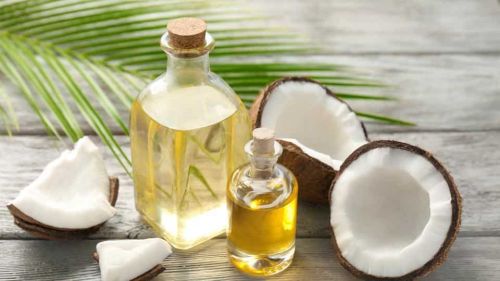
The health benefits of coconut oil appear to be far reaching, and some are calling this a ‘wonder food’. The ability of coconut oil to boost the immune system, as well as soothe and repair digestive disorders is very relevant and will be supportive for those with endometriosis.
Coconut oil is now seen as one of the healthier oils you can consume. It is rich in lauric acid, which is known for being anti-viral, antibacterial and anti-fungal. You can even use it on your skin to help prevent wrinkles.
There is a widespread misconception that coconut oil is bad for you because it contains saturated fat – again, this advice comes from only knowing half the facts.
Fats are categorised as short, medium, or long-chain molecules depending on how many carbon molecules they contain. Close to two-thirds of the saturated fat in coconut oil is made up of medium-chain fatty acids, which have anti-microbial properties, are easily digested by the body for quick energy, and are beneficial to the immune system. Far from being dangerous, the saturated fat in coconut oil is actually health promoting.
You can use coconut oil in your cooking and add it to many dishes like stir fry’s, spicy soups, spicy noodle dishes.
The bottom line regarding oils in the diet for endometriosis
- Don’t use trans-fats
- Use oils high in omega 3 which are cold pressed
- Use the right oil for the right situation – certain oils to eat raw and other oils which are better used for cooking
- Add some omega 3 oils to your diet with oily fish
- Add some coconut oil to your diet to gain from its health benefits
Reference:
https://academic.oup.com/humrep/article/25/6/1528/2915756 - endometriosis and fats in diet study
https://www.ncbi.nlm.nih.gov/pubmed/23642910 - omega 3 oils and endometriosis
https://www.ncbi.nlm.nih.gov/pubmed/24898804 - omega 3 oils study
 As featured in:
As featured in: